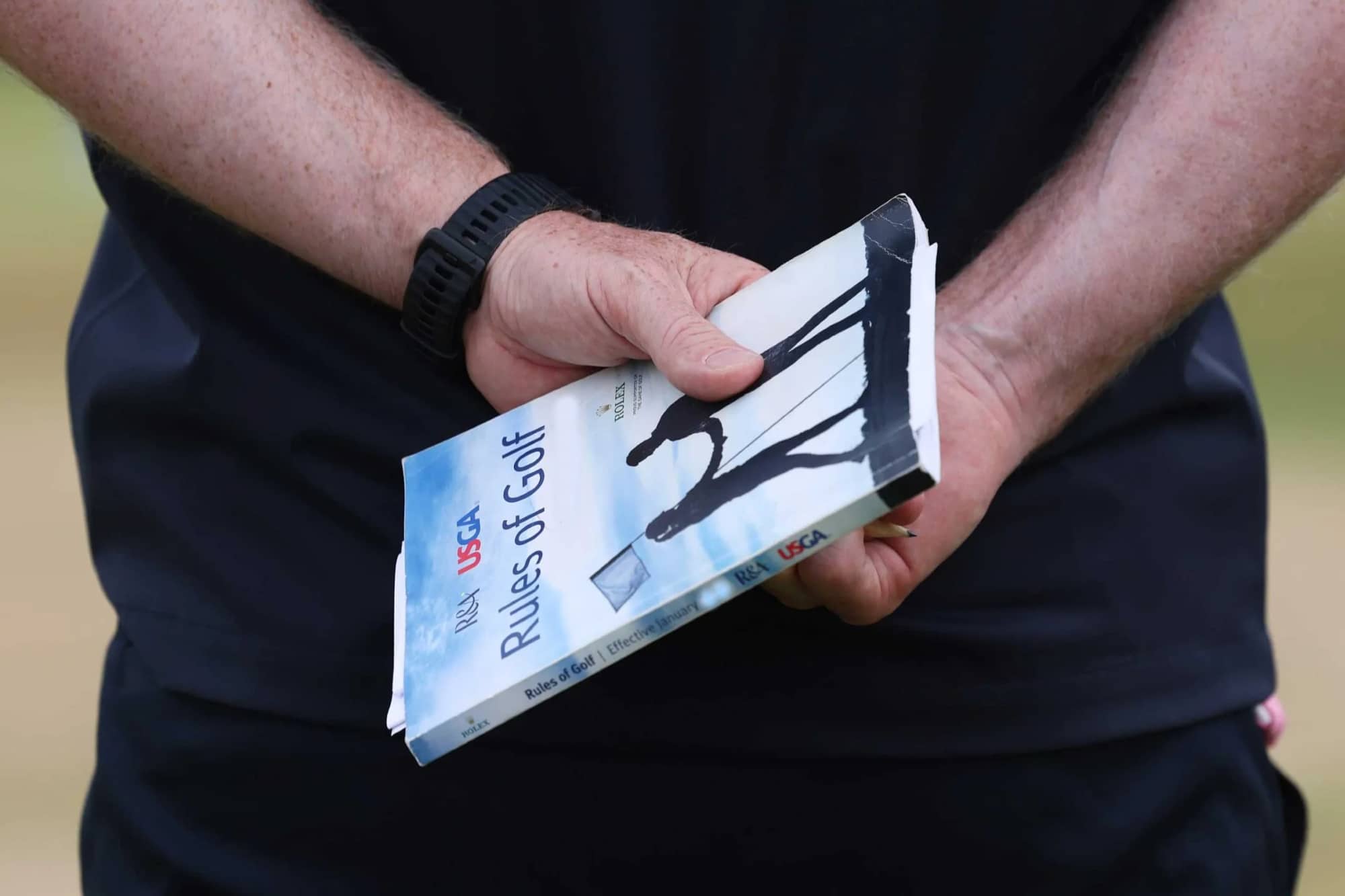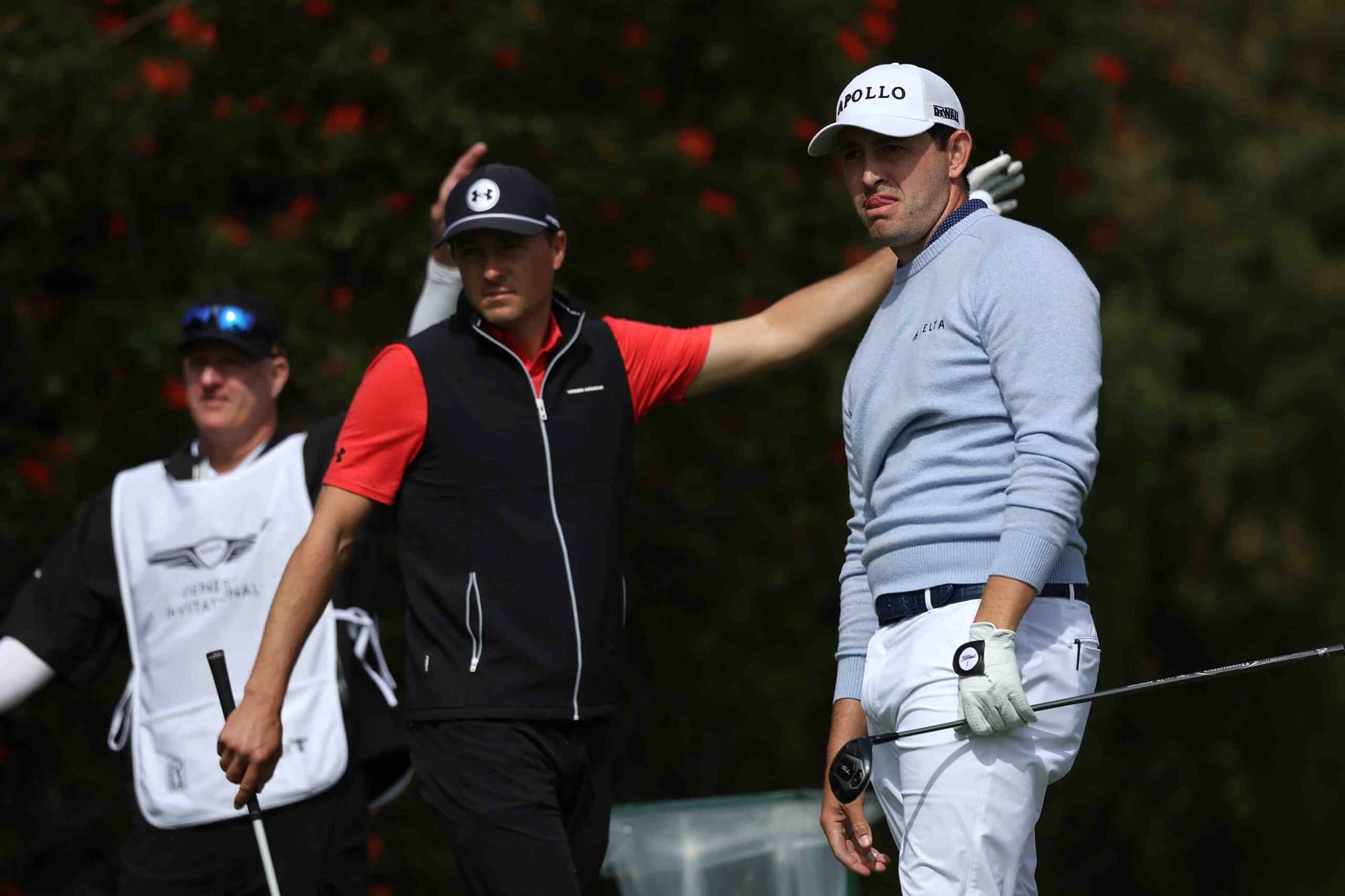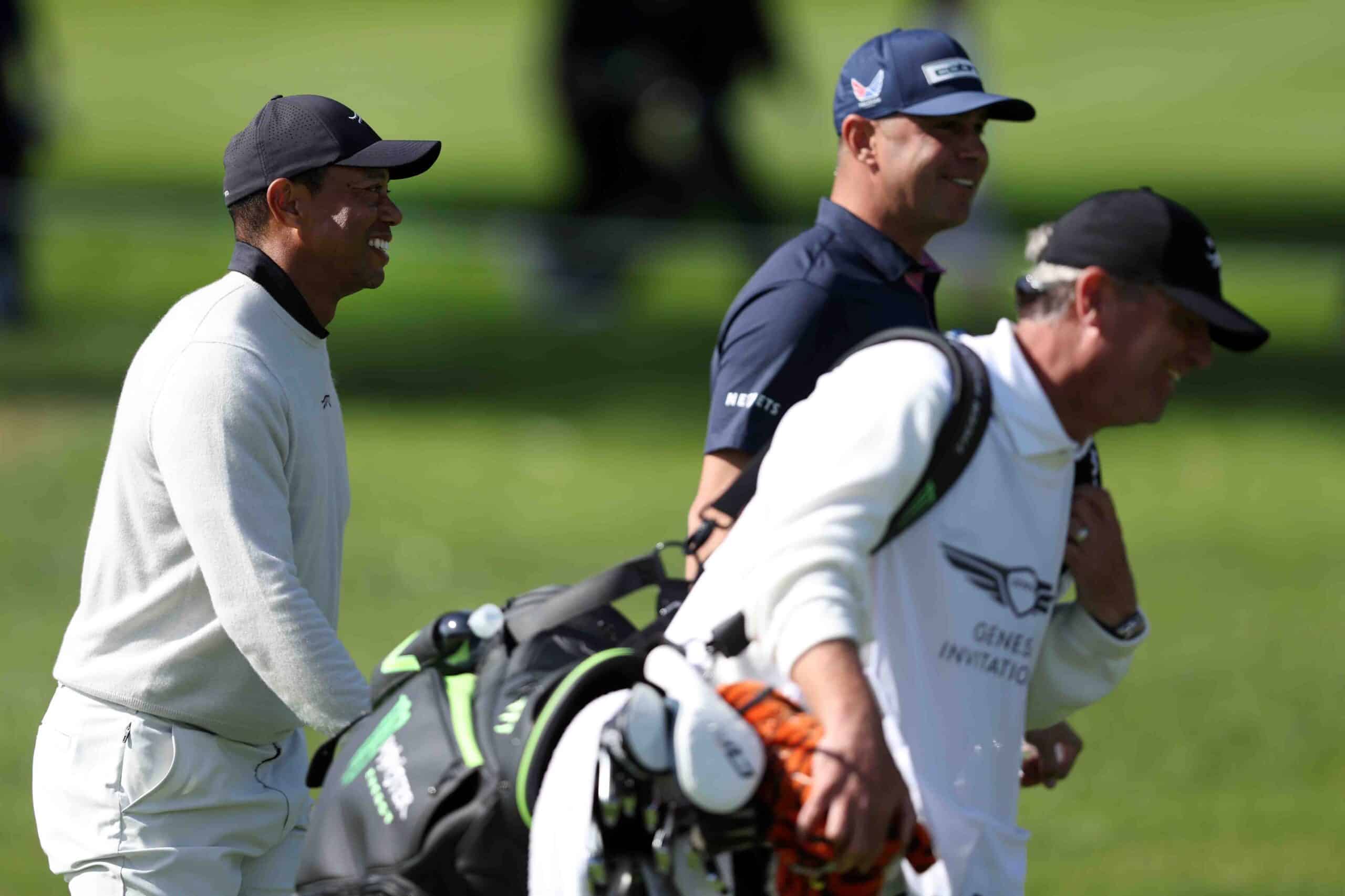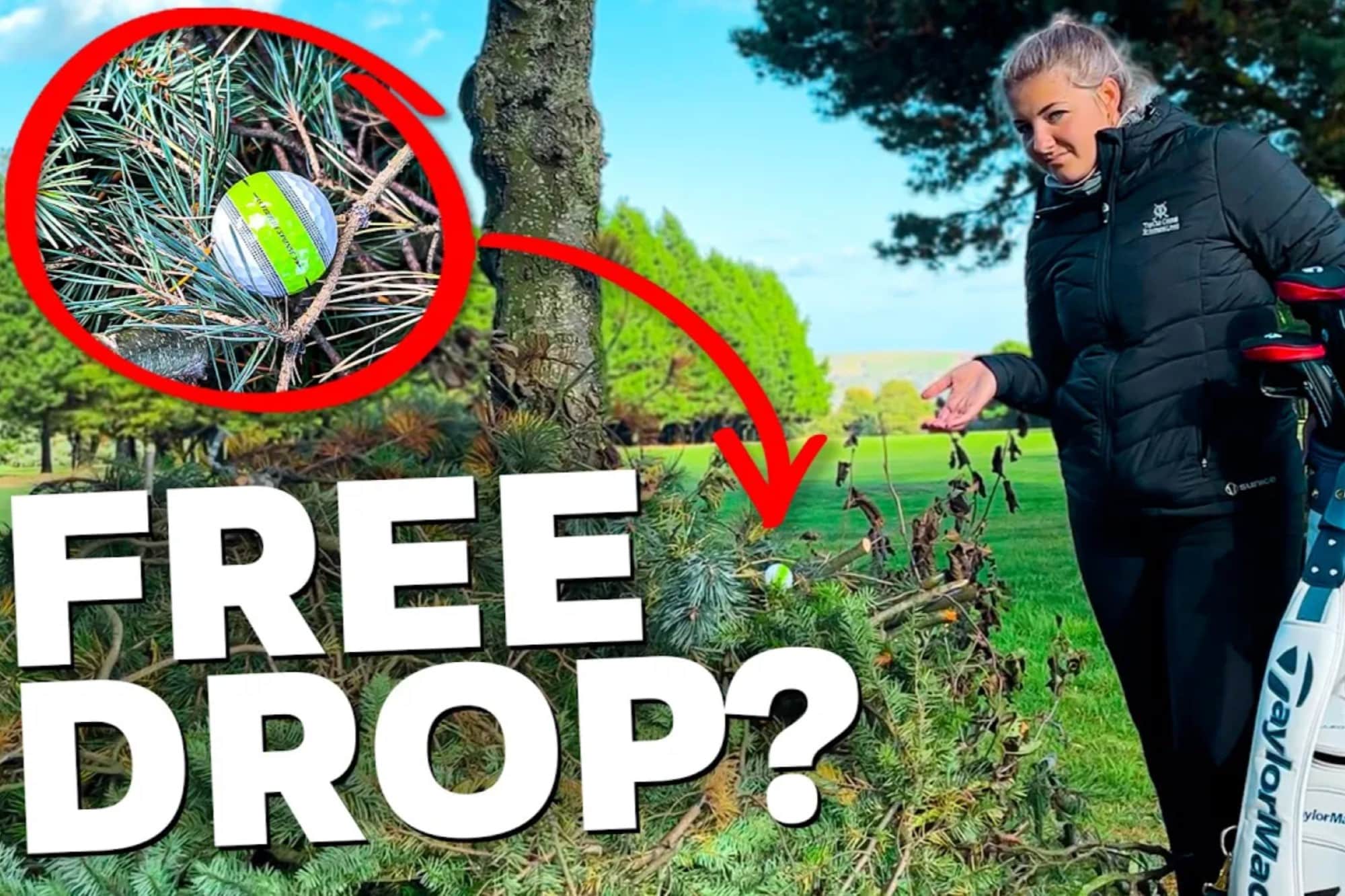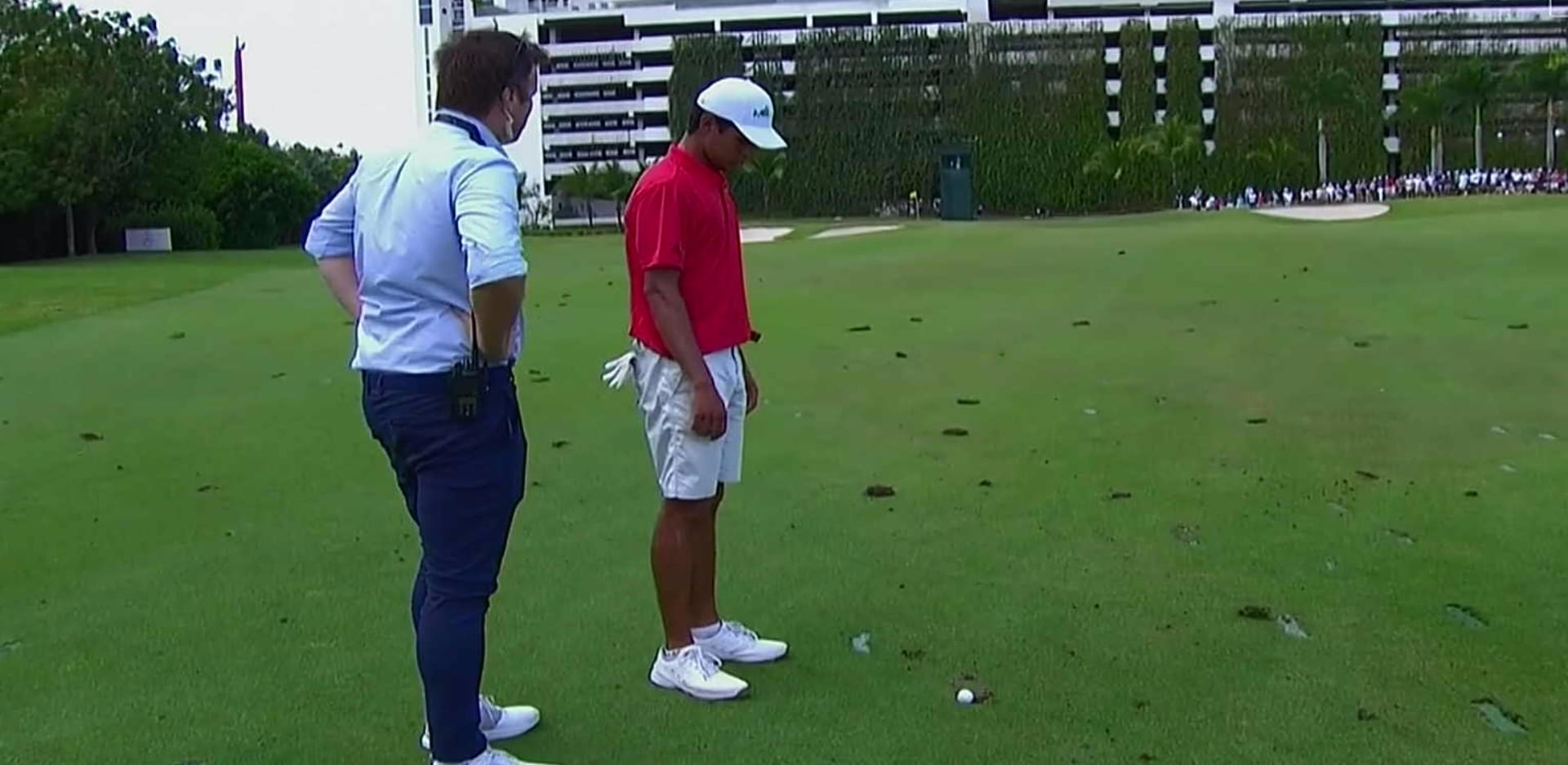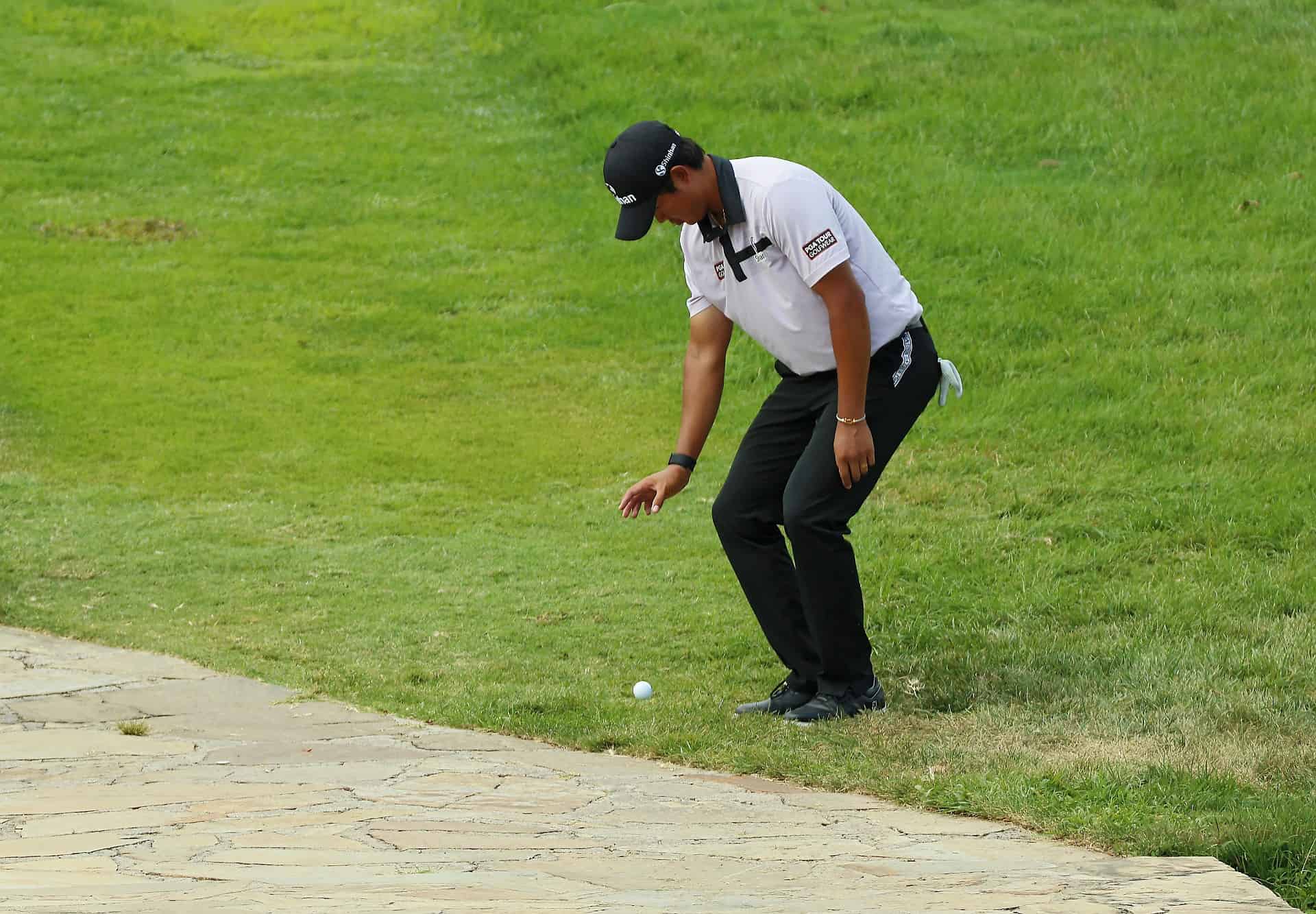‘To say you can win a £300 voucher but not £30 in cash isn’t logical’: R&A rules chief explains amateur changes
The overwhelming majority of golfers are amateurs and so changes to the Rules of Amateur Status – the code that distinguishes the 99 per cent of us from professionals – has the potential to have huge impact.
The R&A and USGA have unveiled draft proposals for sweeping alterations, ranging from allowing players to accept cash prizes up to a certain limit to giving elite amateurs the opportunity to obtain sponsorship to meet the demands of funding a busy competitive season.
The governing bodies are inviting feedback and you can read more about what is in store here.
But following their unveiling, I sat down with Grant Moir, the R&A’s director of rules, to get his insight into the proposed changes…
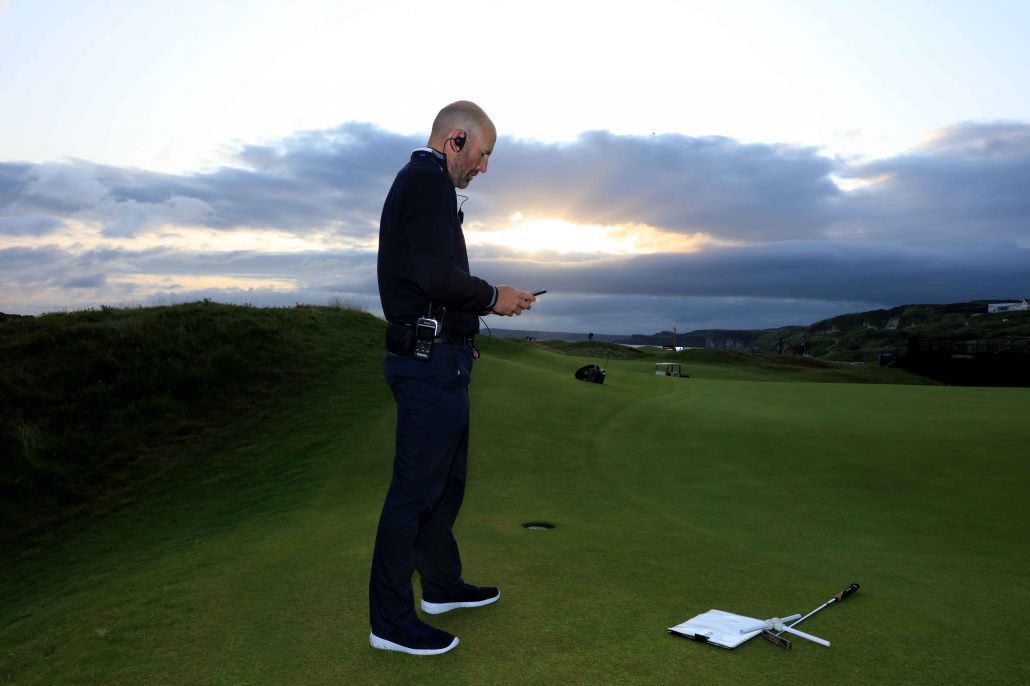
This feels like the biggest shake-up in the Rules of Amateur status for decades. Would you agree there are some fundamental changes here?
There are some far-reaching proposals in this document. The Rules of Amateur Status haven’t stood still – they have evolved over the years – but as golf continues to evolve and modernise it’s important the Rules of Amateur Status modernise with it.
It’s a thoughtful set of proposed changes. We want to make these rules easier to understand and apply. But the key point is we think they are good for amateur golf – amateur golf at the regular club level, and also the elite level. We’re acknowledging the challenges but also the opportunities that exist for elite amateur players and adjusting these rules to allow them to take advantage of those opportunities.
They are considerably slimmed down compared to previous iterations…
We’ve stripped back a lot of the complexity and, in essence, we’re saying there are three ways that you can lose your amateur status: acceptance of prizes (above a limit), giving instruction for payment, or being employed as a club professional, driving range professional, or a member of the PGA.
When you take out the restrictions in relation to, particularly, sponsorship and expenses – those were very complex areas of the current rules – and it does enable you to cut down a lot of the wording.
Do you think, overall, these new Rules of Amateur Status maintain the fundamental point of what it is to be an amateur?
I do. I think the fundamental point of being an amateur is around what you can accept in the context of playing, or what your employment is.
One thing we felt was very important, when we went back to basics and analysed the purpose of these rules, is that in essence they’re there to protect the integrity of the game.
We don’t want to increase pressure on the Rules of Golf or Rules of Handicapping. The game is self-regulating for the vast majority that play it and it is great because of that.
So we think the fundamental point of the Rules of Amateur Status is to retain that focus on integrity and the prize value limit, we feel, does that.
How seriously was the concept of ‘open golf’ discussed?
We felt it had to be the starting point in this fundamental review. It was looked at seriously. We ultimately took the view there is a lot that is good about the game, that perhaps people don’t understand, as a consequence of the Rules of Amateur Status.
Ultimately, we felt we didn’t want to risk jeopardising the fact the majority of us play for fun and enjoyment. We decided protecting the integrity of the game, not exposing the game to that risk, was very important.
We needed to retain rules because of that. Also, there was this sense that these traditional amateur events, particularly at the elite level, provide a well-trodden pathway for those that aspire to play the game professionally.
To remove that would mean, in some ways, you’d have to start again with that pathway. We continue to feel that these historic elite amateur events are relevant and beneficial to those who have those aspirations.
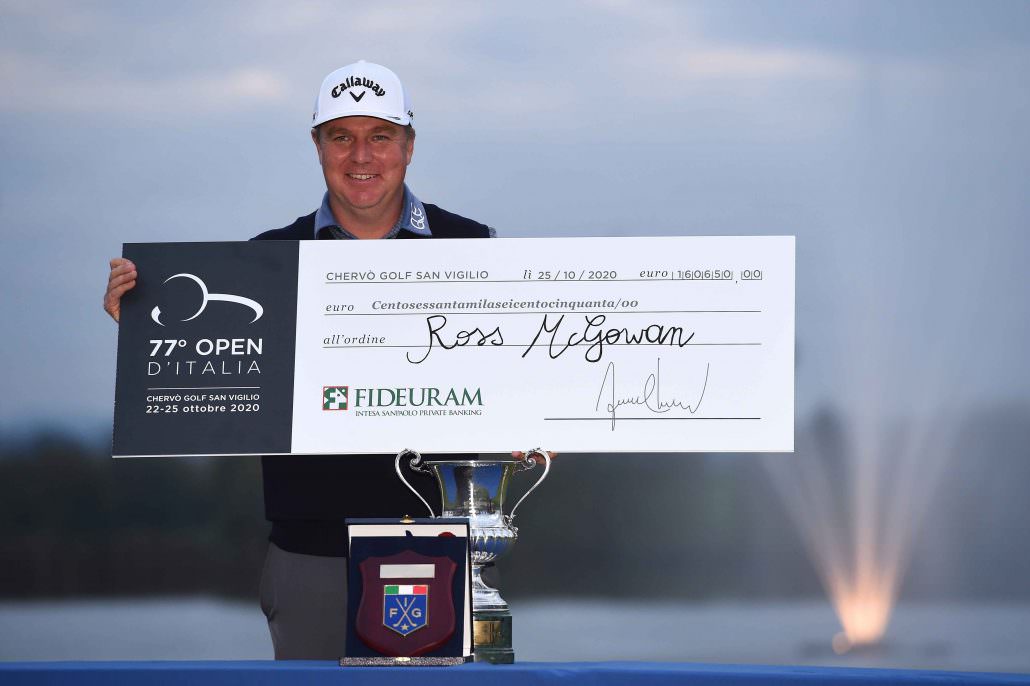
For club golfers, one of the eye-catching proposals is the ability to receive cash prizes – up to a limit. What’s the reasoning behind that potential change?
Part of it was around the blurring of the lines between cash prizes and non-cash prizes over a long period of time.
The liberalisation of what vouchers can be used for now, which includes from golf club subscriptions to bar bills, they’re not restricted to being used in certain ways – albeit clubs can choose to do that.
So there was that element of it and when you’re trying to ensure that the rules are modern and logical, most of us who play club golf never win more than a handful of pounds and vouchers. To say you can win a £25 voucher but you can’t win £10 in cash, or you can win a £300 voucher, but you can’t win £30 in cash doesn’t seem like a modern and logical approach. For us, it’s the value that is the important point, not the nature of the prize itself.
Presumably, that’s why keeping a limit in place was particularly important? Going back to the concept of ‘open golf’, potentially unlimited prizes in self-regulated amateur competitions would be pretty difficult to manage…
It is. We’ve had enough examples down the years, where there have been events that offer prizes that are in excess of what is allowed, and that has not proved to be good for the club game.
The additional temptation, and the like, that introduces in a game that relies on people to play in a self-regulating manner is detrimental to golf.
We think those limits remain appropriate and they remain an important part of the game that we love at club level.
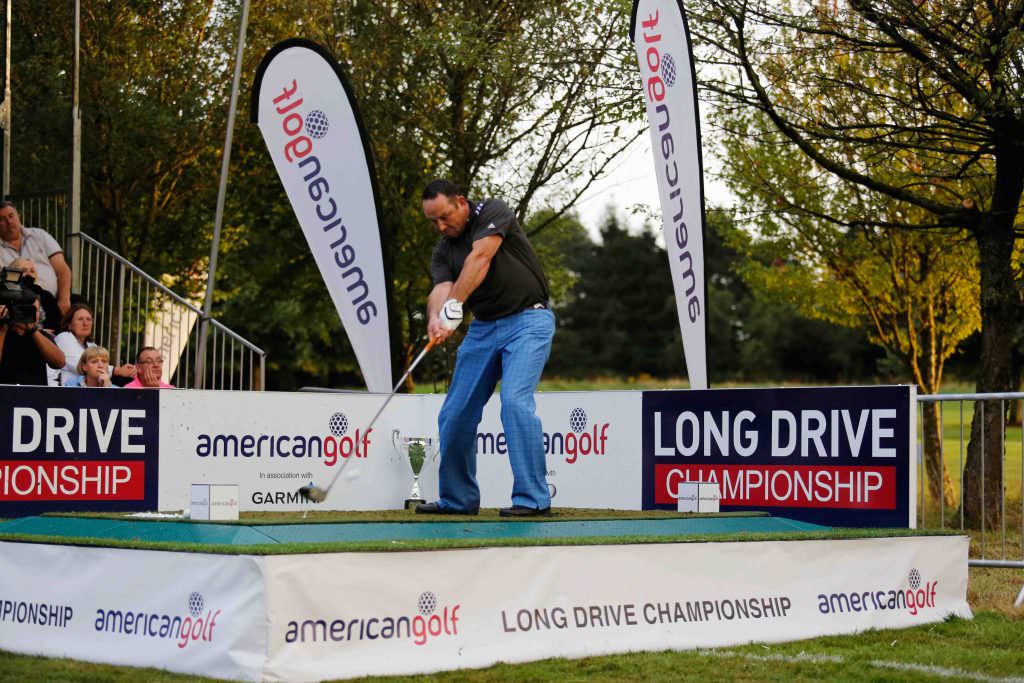
Another proposal that stood out was the prize rule would no longer apply to long drive events – competitions that weren’t going from tee to hole. Some of these competitions have big cash prizes so what do you see is the difference between them?
There are a couple of aspects to it. One is from an administrative perspective, from a national body perspective, looking to try and enforce rules, say, for venues that may be miles away from a golf course. They may be events that are intended to try and attract interest and new people into the game.
But the more important point here is that when we undertook this review, we looked at what is the purpose, What is the reason for the Rules of Amateur Status, and what are the reasons for the restrictions we have?
The restriction on prizes is about ensuring there isn’t this temptation to somehow to be less observant of the Rules of Golf and cavalier with the Rules of Handicapping.
That’s all about tee-to-green golf. That’s all about competitions where you’re recording your score for the hole and the round. And really, whether it be hole-in-one prizes, long-drive competitions, whether it be a putting contest, none of these things really have the potential to impact on the Rules of Golf, the Rules of Handicapping, and the self-regulating nature of the game.
We just felt the time had come to separate those types of competitions and treat them separately from the restrictions that apply to the round of golf.
Let’s turn to sponsorship. This has always been tricky in the past as you had members of national squads potentially benefiting from entries being paid and so on and other amateurs, not fortunate to be involved in those, who had to pay their own way. Are the proposals here to level the playing field?
The elite amateur game has evolved and if you want to make your way at that level it does involve considerable amount of travel, expenses, and the like.
As you say, if you’ve made it into those national squads then, often, your expenses will be funded and the national body will often fund that through sponsorship, that is of the squad itself, and they can advertise the source of that funding.
We’ve just felt that with the money it costs to compete at that level, for those that don’t quite make it into those squads, they’re relying often on parental backing or getting employment themselves to fund it.
And if they do get backing from golf clubs or local businesses, they haven’t been able to advertise the source of that sponsorship, which, of course, reduces the scope for them to get that sponsorship.
Inevitably, anybody putting forward some money is looking to get some promotional benefit.
We feel just opening this up, really does create greater equity across the elite amateur game. It provides greater opportunity. There’s no doubt as well that, again, we’re looking at the opportunities that social media has provided in recent times.
There is greater scope to give that kind of thanks or that shout out to a sponsor across those social media platforms so it’s about enabling those elite amateurs to access that opportunity and we think, under a modern evolving code, that’s entirely reasonable.
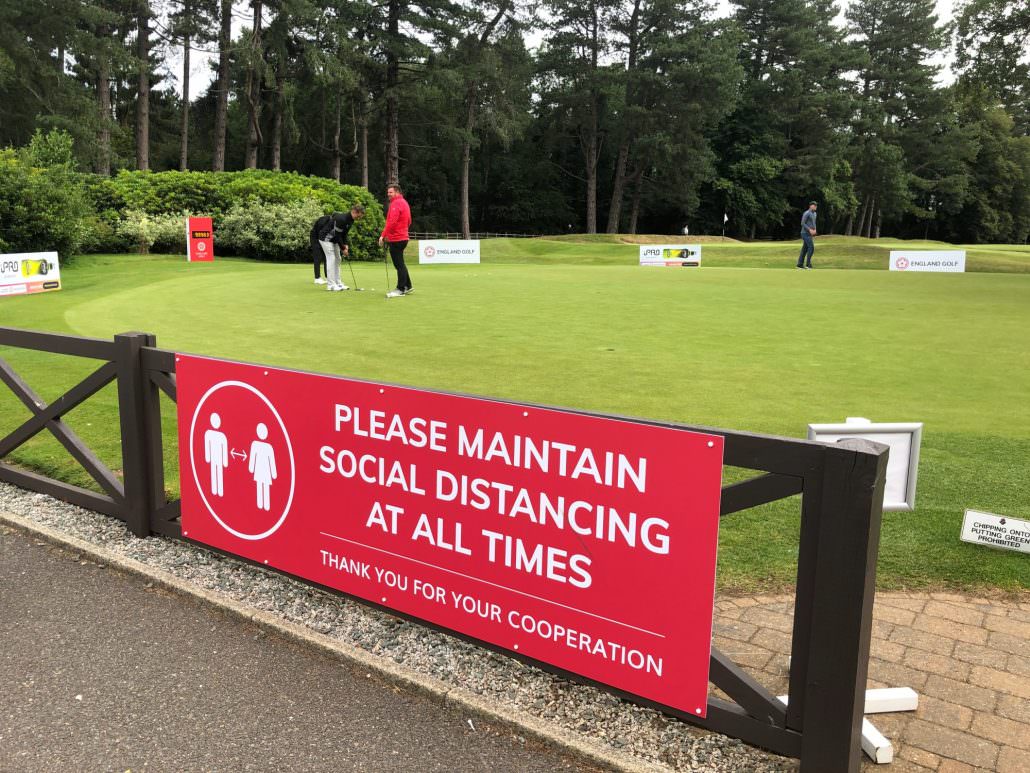
Ideologically, was that one of the trickier decisions because, looking back historically, that’s often been where the blurring between amateur and professional status has been?
It is a significant proposal and we’ll be very interested to get feedback on it. But I think the way you see golfers nowadays, they look like professionals, they dress like professionals, and I don’t think anybody is going to bat an eyelid if they have a logo on their shirt like a professional.
Actually, you’ll probably find that’s what they would expect those playing at elite level to have. People wouldn’t understand the squad member can have it but the individual can’t.
I don’t think it was too difficult for us to get to the point where we thought we should be proposing this and this is the right way for the rules to evolve.
And by setting out the three ways that you effectively are a professional, you’ve simplified that anyway…
That’s right. The code itself focuses on amateur and non-amateur so there’s just these three ways you can transition out of amateur status. That should really be a fairly simple message for everybody to adjust to.
In the past, reinstatement back into amateur status has been perceived as something of a tortuous process. The new rules are proposing cutting the minimum waiting time from 12 to six months. What has driven that change?
Over the years, again the periods awaiting reinstatement have steadily reduced. We’re continuing that trend with these proposals.
We see a lot of applications for reinstatement come through our offices each year. Generally speaking, it’s either because somebody hasn’t achieved the success they were hoping for in tournament play, or they’ve decided they want to pursue a different career to being a PGA professional.
In neither of these cases do these players coming back into the amateur game negatively impact on the amateur game. In fact, they probably have a positive impact.
We feel six months is an appropriate period of time. You could argue ‘why have a reinstatement process at all?’ We think that is important in terms of tracking, to ensure that people understand what their status is, and just to avoid the flip-flopping potential.
We think six months is an appropriate period of time for the majority of people who will be coming back and having had an experience that, perhaps, just wasn’t what they’d been hoping for.
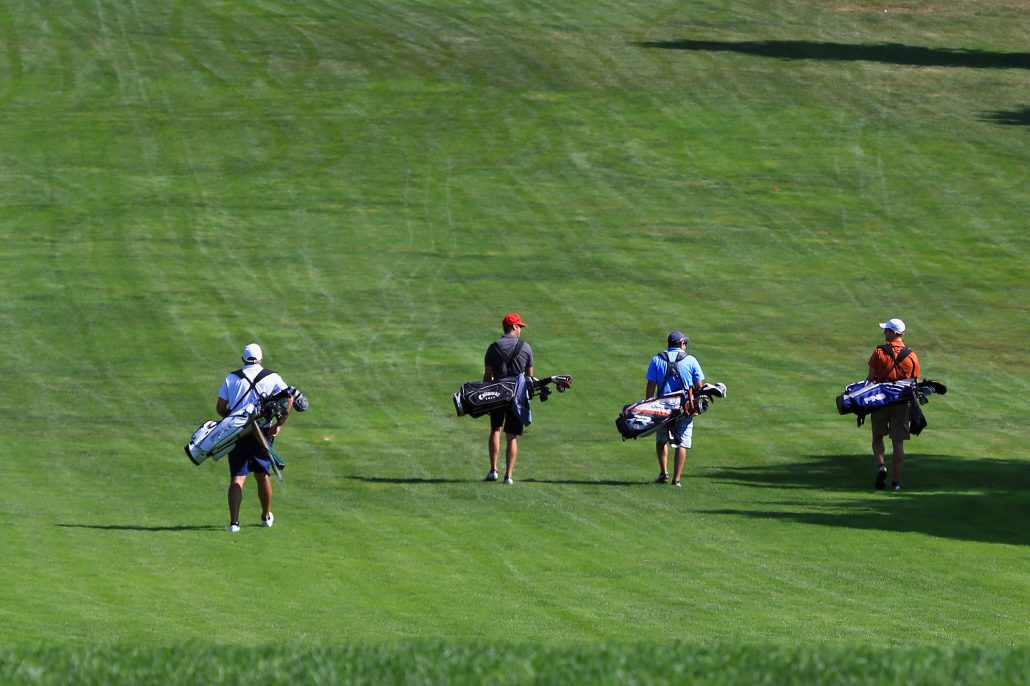
It’s a bold set of proposals, which will have an impact both for club golfers as well as elite amateurs and those looking to come back to the amateur game…
There’s no doubt. It is a far-reaching set of proposals and, I would emphasise, we’ve collaborated on these proposals up to this point.
We’ve had a lot of discussions with different stakeholders within the amateur and the professional game. But this is a bona fide feedback process we’re entering into here.
You’ll recall when we had the similar feedback process for the modernisation of the Rules of Golf, we made a few adjustments based on feedback.
That potentially could happen here, time will tell. But we know there will be a lot of people that will be very interested in these proposals and will have strong feelings – in support and some against.
We’re really looking forward to this next few weeks but we will have a new set of amateur status rules in place for January, 2022, and we’re confident they’ll benefit the game as a whole.
To have your say on the proposals, visit the R&A’s website.
- NOW READ: The proposed changes in more detail
What do you think of the R&A and USGA proposals for the Rules of Amateur Status? Let me know in the comments, or tweet me.
Subscribe to NCG
Steve Carroll

A journalist for 25 years, Steve has been immersed in club golf for almost as long. A former club captain, he has passed the Level 3 Rules of Golf exam with distinction having attended the R&A's prestigious Tournament Administrators and Referees Seminar.
Steve has officiated at a host of high-profile tournaments, including Open Regional Qualifying, PGA Fourball Championship, English Men's Senior Amateur, and the North of England Amateur Championship. In 2023, he made his international debut as part of the team that refereed England vs Switzerland U16 girls.
A part of NCG's Top 100s panel, Steve has a particular love of links golf and is frantically trying to restore his single-figure handicap. He currently floats at around 11.
Steve plays at Close House, in Newcastle, and York GC, where he is a member of the club's matches and competitions committee and referees the annual 36-hole scratch York Rose Bowl.
Having studied history at Newcastle University, he became a journalist having passed his NTCJ exams at Darlington College of Technology.
What's in Steve's bag: TaylorMade Stealth 2 driver, 3-wood, and hybrids; TaylorMade Stealth 2 irons; TaylorMade Hi-Toe, Ping ChipR, Sik Putter.


